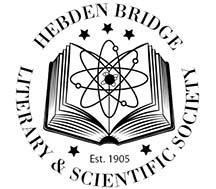Wednesday, 13 March 2024

Where do babies come from and why did it take 200 years to find out?
Speaker: Matthew Cobb, Professor of Zoology at Manchester University
Born in Bradford (John Wright), Julie Hesmondhalgh, Nichola Cullinan, Simon Armitage and AI (Thomas Leo McCluskey) – how do you follow these luminaries in one of the Lit & Sci's most successful seasons ever?
As it turned out the answer was easy. You find a very brilliant communicator, and a versatile, deep-thinking Renaissance man. A scientist whose teaching style makes you want to start your education all over again. We found all these qualities in Matthew Cobb whose enthusiasm for the history of human generation (The Egg and Sperm Race) was truly infectious.
Look at Matthew's online fingerprint and you realise why we were so enthralled by him. His scientific interests and expertise seem boundless with 117 topic labels that include major studies in fruit flies, maggots, genetics, copulation and smell.
It is obvious from his catalogue of speaking engagements, for example, on Radio 4, The Hay Book Festival, lectures at The Genetic Society, and his packed diary of popular university lectures that he can turn these topics into educational and entertaining presentations. This is just what he did for us on Saturday evening.
He gave us an illustrated romp through the scientific history of why it took over 200 years to finally discover where babies come from.
We started the race with Aristotle, at least 2330 years ago, and jogged our way through a wide range of Greek, Arabic and Chinese scientific thinking on the subject pausing in the 18th century where the public's understanding of the subject was still so speculative that some people were taken in by Mary Tofts who, in 1720, convinced her audiences that she could, and seemingly did, give birth to a litter of rabbits.
Of course, we listened intently always remembering Matthew's appeal at the beginning that: people in the past were not stupid; and that we must try to understand why they thought what they did, not criticise them from the standpoint of our received wisdom.
In the middle of the seventeenth century, it seemed that female eggs were at the centre of all scientific thinking, but then Antonie van Leeuwenhoek, who is called the father of microbiology, used his microscope to look closely at his own semen. But instead of realising that the tiny wriggling things he saw were the male contribution to the next generation, he initially thought they were parasites – a view that continued well into the nineteenth century. Surprisingly, no one realised that egg and sperm were equivalents because they did not understand that all life is made of cells: despite the differences in size and movement, egg and sperm are both sex cells.
Racing on again, in the 1800s the debate turned on hereditary and cell theory via Blackwell's selected sheep breeding and Gregor Mendel's careful breeding of garden peas which formed the mathematical foundations of genetics.
Matthew's final jigsaw piece in the hereditary journey was quite explosive for the older popular-science aficionados in the audience. The mist parted and we realised how, in our lifetime, the secret was uncovered. The human genome, revealed in 2001, grew out for the work on the DNA double helix published in 1953.
Suddenly, it all fitted into place. The egg and sperm race was run and what we are, as humans, is determined by the letters in a DNA code that are part of a pattern amounting to over three billion letters. Aristotle's theory to the double helix in just over an hour. Phew!
Matthew's race was well run.
If the talk was not enough for us to realise Matthew's worth as a speaker, the way he answered the questions from the audience sealed it. Especially, the question about how he manages scientific conclusions that turn out to be wrong or incorrect. The way he thought sensitively about this, and concluded that he might think more about it, showed his credentials as a reflective scientist, and indeed teacher, to great effect.
Peter Lord said at the end, "This was a spectacular talk," and our intense clapping echoed this sentiment unequivocally.
Many thanks to Roger Gill for this report
The Lit & Sci website
More Lit & Sci coverage from the HebWeb

